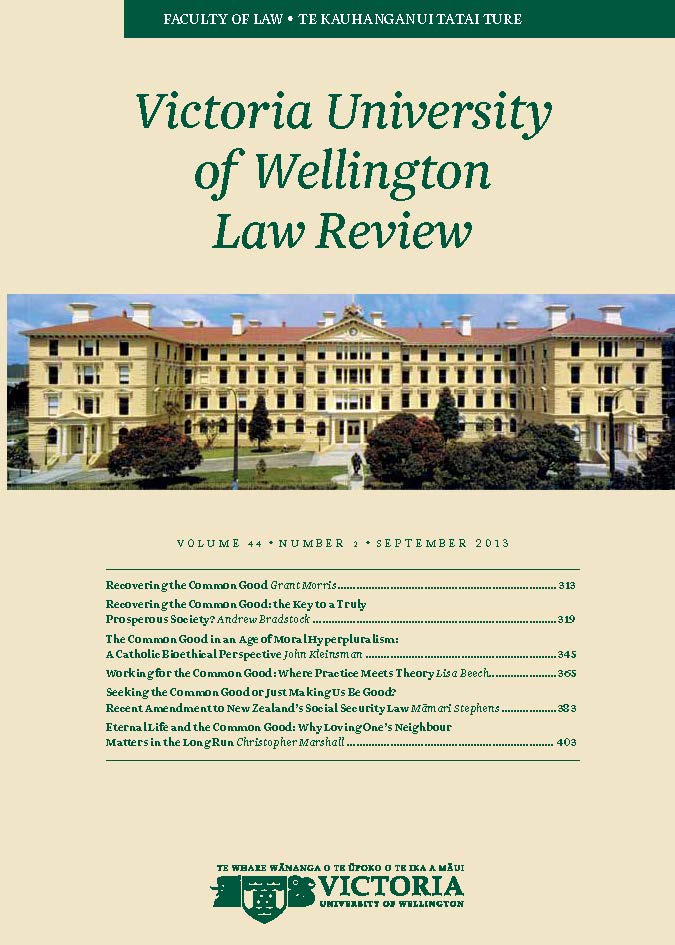The Common Good in an Age of Moral Hyperpluralism: A Catholic Bioethical Perspective
DOI:
https://doi.org/10.26686/vuwlr.v44i2.4999Abstract
This article will argue that the notion of the common good is imperilled by a particular contemporary account of the moral good; one which, because of its (somewhat narrow) emphasis on the individual, readily lends itself to a state of 'moral hyperpluralism' in which 'the good' is primarily defined in terms of the promotion and protection of self-interest. At the same time, it will be argued that any quest to recover the notion of the common good cannot be achieved by either returning to, or holding onto, a more traditional account of morality. It will also be proposed that, as part of the quest to recover the common good, close attention needs to be paid to how the term is understood. The tension between individual autonomy and the welfare of society, and the differing ways in which this tension is resolved within different moral paradigms, will emerge as central to any discussion about the ongoing place of the common good in contemporary legal and moral debates. Finally, it is suggested that a solid basis for articulating a robust account of the common good may be found in the foundational and innovative work being done by thinkers of the gift to establish an alternative account of morality.
Downloads
Downloads
Published
How to Cite
Issue
Section
License
Authors retain copyright in their work published in the Victoria University of Wellington Law Review.


